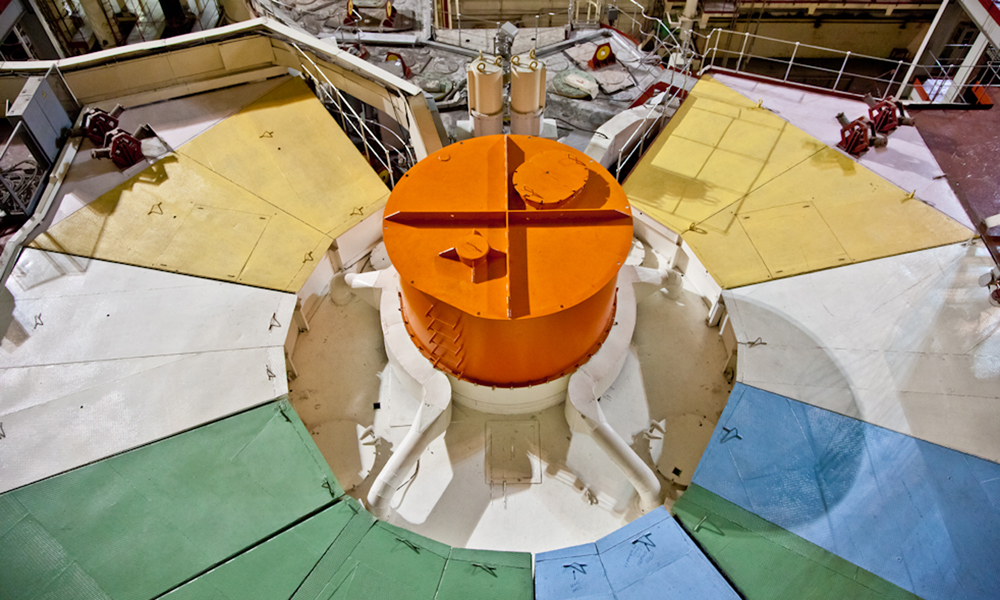
Fighting Cancer with BN-600
back to contentsThe project aims to maximize production of cobalt-60 with a specific activity of at least 300 Ci/g. The plans are to use the BN-600 fast breeder reactor operating at the Beloyarsk nuclear power plant. Radioactive cobalt-60 is very much sought after both on the Russian and global markets. This isotope is widely used to sterilize food and surgical instruments, boost crop growth and yields, decontaminate industrial waste and detect material defects with gamma radiation.
Another popular application of cobalt-60 is nuclear medicine. It is used in cobalt machines as a source of radiation in cancer therapies, as well as in gamma knife units to perform stereotactic radiosurgery on brain tumors.
Cobalt-60 is produced by placing the feedstock, cobalt-59, in the neutron flux emitted by a nuclear reactor or a neutron generator. Since the isotope is commercially attractive and enjoys a steady demand, Russian nuclear companies have long been engaged in the production of cobalt-60.
For instance, it has been produced since 1995 in the RBMK-1000 channel-type thermal reactors at the Leningrad nuclear power plant. The plan is to adopt the same Co-60 production process at the Smolensk nuclear station operating RBMK reactors. Utilization of nuclear reactors beyond electricity or heat generation fits into a broader trend of boosting the efficiency of Russia’s nuclear facilities.
However, thermal reactors, which are the backbone of present-day nuclear generation, can only produce cobalt-60 with a specific activity of below 80 Ci/g, while the global market needs more radioactive Co-60 isotopes. This can be achieved with fast reactors.
The world’s only commercial fast reactors are operated at Russia’s Beloyarsk Unit 3 (BN-600) and Unit 4 (BN-800). BN-600 was used in 1991-2004 to produce trial batches of cobalt-60 in experimental irradiation units. It was proved that fast reactors are capable of commercially fabricating this isotope with a required specific activity.




